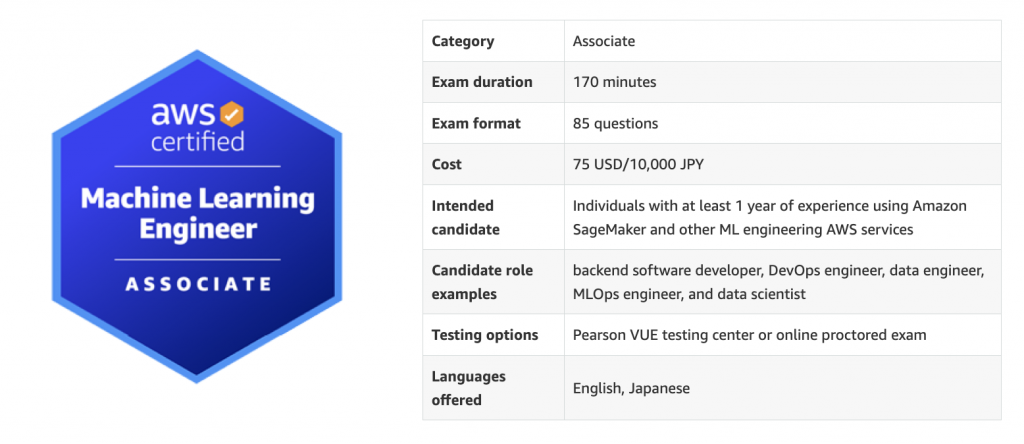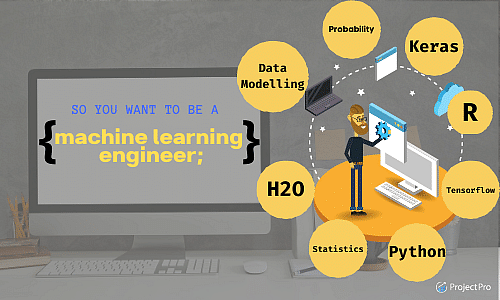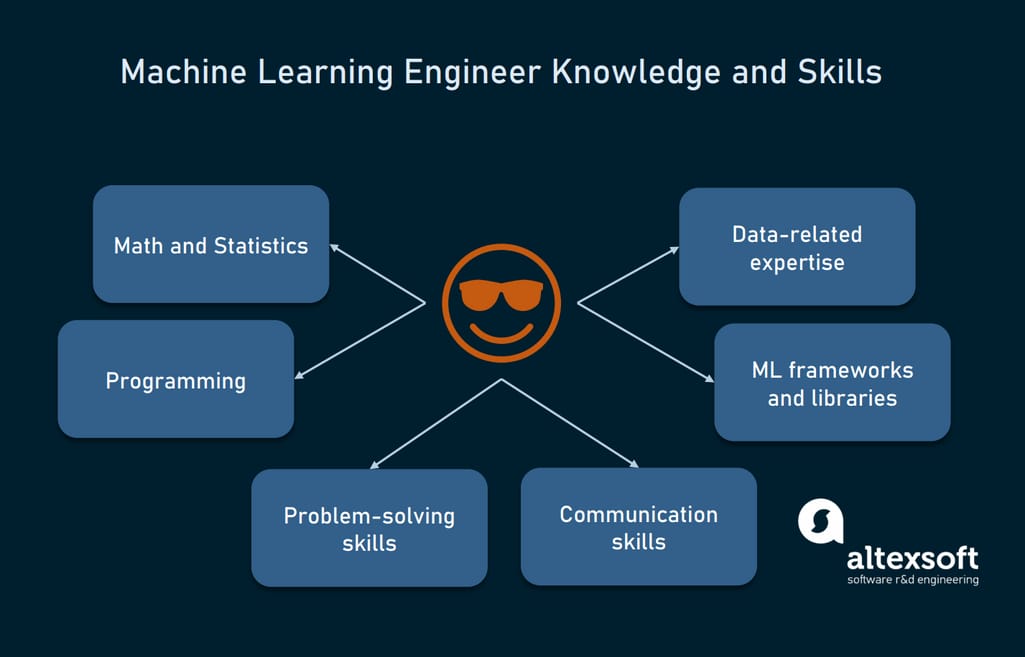All Categories
Featured
Table of Contents
Suddenly I was bordered by individuals that could fix tough physics concerns, comprehended quantum auto mechanics, and can come up with interesting experiments that obtained published in leading journals. I dropped in with an excellent team that motivated me to explore points at my own speed, and I spent the next 7 years discovering a lot of points, the capstone of which was understanding/converting a molecular characteristics loss function (consisting of those shateringly learned analytic by-products) from FORTRAN to C++, and composing a slope descent regular straight out of Mathematical Dishes.

I did a 3 year postdoc with little to no artificial intelligence, simply domain-specific biology stuff that I didn't find fascinating, and finally procured a task as a computer system scientist at a nationwide laboratory. It was a great pivot- I was a concept private investigator, indicating I can make an application for my very own grants, create papers, etc, yet didn't have to teach courses.
Some Known Details About Aws Certified Machine Learning Engineer – Associate
I still didn't "get" device learning and desired to function someplace that did ML. I attempted to obtain a work as a SWE at google- went through the ringer of all the tough questions, and inevitably obtained turned down at the last step (many thanks, Larry Page) and went to work for a biotech for a year before I finally procured employed at Google throughout the "post-IPO, Google-classic" era, around 2007.
When I reached Google I quickly checked out all the projects doing ML and located that than advertisements, there truly wasn't a whole lot. There was rephil, and SETI, and SmartASS, none of which seemed also from another location like the ML I was interested in (deep neural networks). So I went and focused on various other stuff- learning the distributed technology below Borg and Giant, and understanding the google3 pile and production settings, primarily from an SRE viewpoint.

All that time I 'd invested on device learning and computer system framework ... went to writing systems that packed 80GB hash tables right into memory so a mapmaker might calculate a tiny component of some slope for some variable. Regrettably sibyl was in fact a terrible system and I got started the group for telling the leader the proper way to do DL was deep semantic networks on high performance computing equipment, not mapreduce on inexpensive linux cluster devices.
We had the information, the algorithms, and the compute, at one time. And even much better, you didn't require to be inside google to benefit from it (other than the large information, which was transforming rapidly). I understand sufficient of the math, and the infra to finally be an ML Designer.
They are under extreme stress to obtain results a few percent better than their partners, and after that when published, pivot to the next-next point. Thats when I thought of among my laws: "The greatest ML versions are distilled from postdoc splits". I saw a few people break down and leave the industry completely simply from working with super-stressful tasks where they did wonderful work, however just reached parity with a competitor.
Imposter syndrome drove me to overcome my charlatan syndrome, and in doing so, along the way, I discovered what I was chasing was not in fact what made me happy. I'm far a lot more pleased puttering regarding making use of 5-year-old ML tech like object detectors to improve my microscopic lense's capability to track tardigrades, than I am trying to end up being a popular researcher that uncloged the difficult troubles of biology.
The Single Strategy To Use For 🔥 Machine Learning Engineer Course For 2023 - Learn ...

Hello there world, I am Shadid. I have been a Software Designer for the last 8 years. I was interested in Device Learning and AI in college, I never had the opportunity or perseverance to go after that interest. Now, when the ML field grew exponentially in 2023, with the most up to date advancements in big language designs, I have an awful longing for the road not taken.
Scott talks regarding exactly how he finished a computer system science degree just by adhering to MIT curriculums and self studying. I Googled around for self-taught ML Designers.
Now, I am uncertain whether it is feasible to be a self-taught ML designer. The only way to figure it out was to try to attempt it myself. I am confident. I prepare on enrolling from open-source courses available online, such as MIT Open Courseware and Coursera.
What Is The Best Route Of Becoming An Ai Engineer? - An Overview
To be clear, my goal here is not to develop the following groundbreaking design. I just intend to see if I can get an interview for a junior-level Machine Discovering or Data Engineering work hereafter experiment. This is purely an experiment and I am not trying to shift into a role in ML.

An additional please note: I am not beginning from scratch. I have solid background expertise of solitary and multivariable calculus, straight algebra, and data, as I took these courses in college concerning a years back.
The Machine Learning/ai Engineer Statements
I am going to omit several of these programs. I am mosting likely to focus mainly on Maker Discovering, Deep understanding, and Transformer Style. For the very first 4 weeks I am mosting likely to concentrate on completing Machine Understanding Field Of Expertise from Andrew Ng. The objective is to speed run with these very first 3 programs and get a solid understanding of the fundamentals.
Since you've seen the training course recommendations, here's a fast guide for your knowing device discovering journey. Initially, we'll touch on the prerequisites for a lot of maker finding out programs. Advanced courses will need the complying with understanding before starting: Straight AlgebraProbabilityCalculusProgrammingThese are the general parts of having the ability to recognize just how machine learning works under the hood.
The initial course in this list, Artificial intelligence by Andrew Ng, has refreshers on the majority of the math you'll require, but it may be testing to learn artificial intelligence and Linear Algebra if you haven't taken Linear Algebra prior to at the exact same time. If you require to brush up on the math needed, take a look at: I would certainly advise learning Python since the bulk of excellent ML programs utilize Python.
What Does A Machine Learning Engineer Do? Can Be Fun For Everyone
In addition, one more exceptional Python source is , which has several complimentary Python lessons in their interactive internet browser atmosphere. After discovering the requirement essentials, you can begin to actually comprehend just how the formulas function. There's a base set of algorithms in device learning that everybody ought to recognize with and have experience utilizing.

The programs provided over consist of essentially every one of these with some variant. Understanding how these methods work and when to use them will be important when tackling new tasks. After the fundamentals, some advanced techniques to learn would be: EnsemblesBoostingNeural Networks and Deep LearningThis is just a beginning, yet these algorithms are what you see in a few of one of the most interesting machine learning remedies, and they're practical additions to your toolbox.
Understanding device discovering online is tough and extremely fulfilling. It's crucial to bear in mind that just seeing video clips and taking tests does not imply you're truly finding out the product. Enter keywords like "maker knowing" and "Twitter", or whatever else you're interested in, and hit the little "Produce Alert" web link on the left to get emails.
The Ultimate Guide To Machine Learning For Developers
Device learning is exceptionally pleasurable and amazing to learn and experiment with, and I hope you located a program over that fits your very own trip into this exciting field. Equipment discovering makes up one part of Information Scientific research.
Table of Contents
Latest Posts
The Best Open-source Resources For Data Engineering Interview Preparation
The Ultimate Guide To Data Science Interview Preparation
How To Answer Business Case Questions In Data Science Interviews
More
Latest Posts
The Best Open-source Resources For Data Engineering Interview Preparation
The Ultimate Guide To Data Science Interview Preparation
How To Answer Business Case Questions In Data Science Interviews